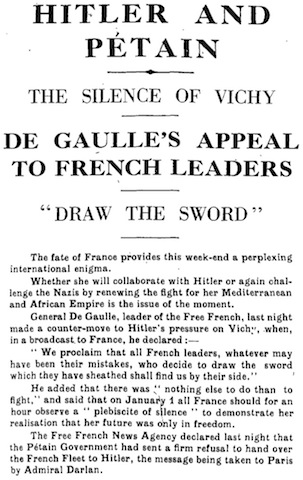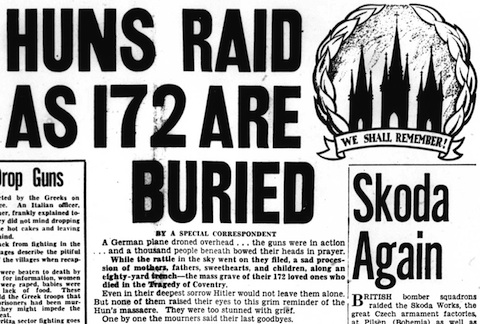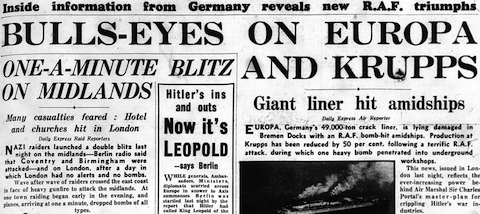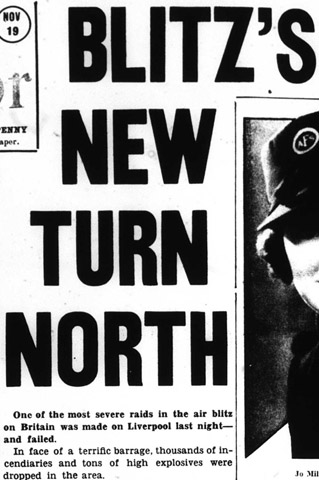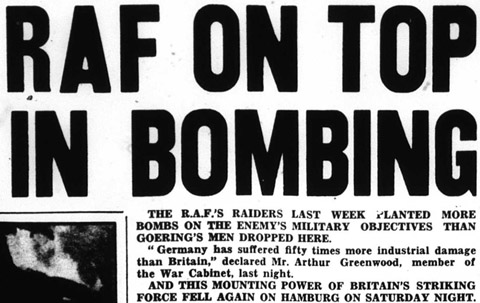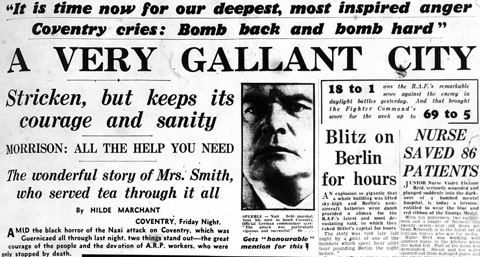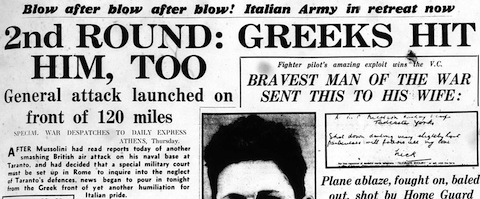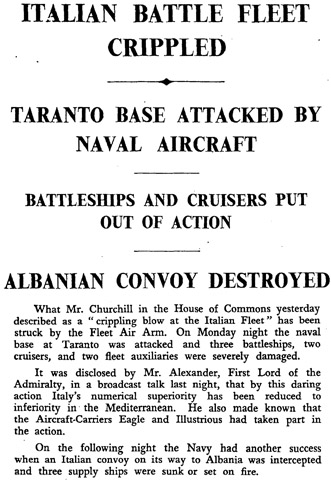Sunday, 29 December 1940
Today seems to be a slow news day, if such a thing can exist in the middle of a world war. The Observer leads today with a non-story (7). Free French radio reports that Hitler has demanded the handover to Germany of the Vichy fleet. Petain’s response to this is unknown; for that matter, so […]


